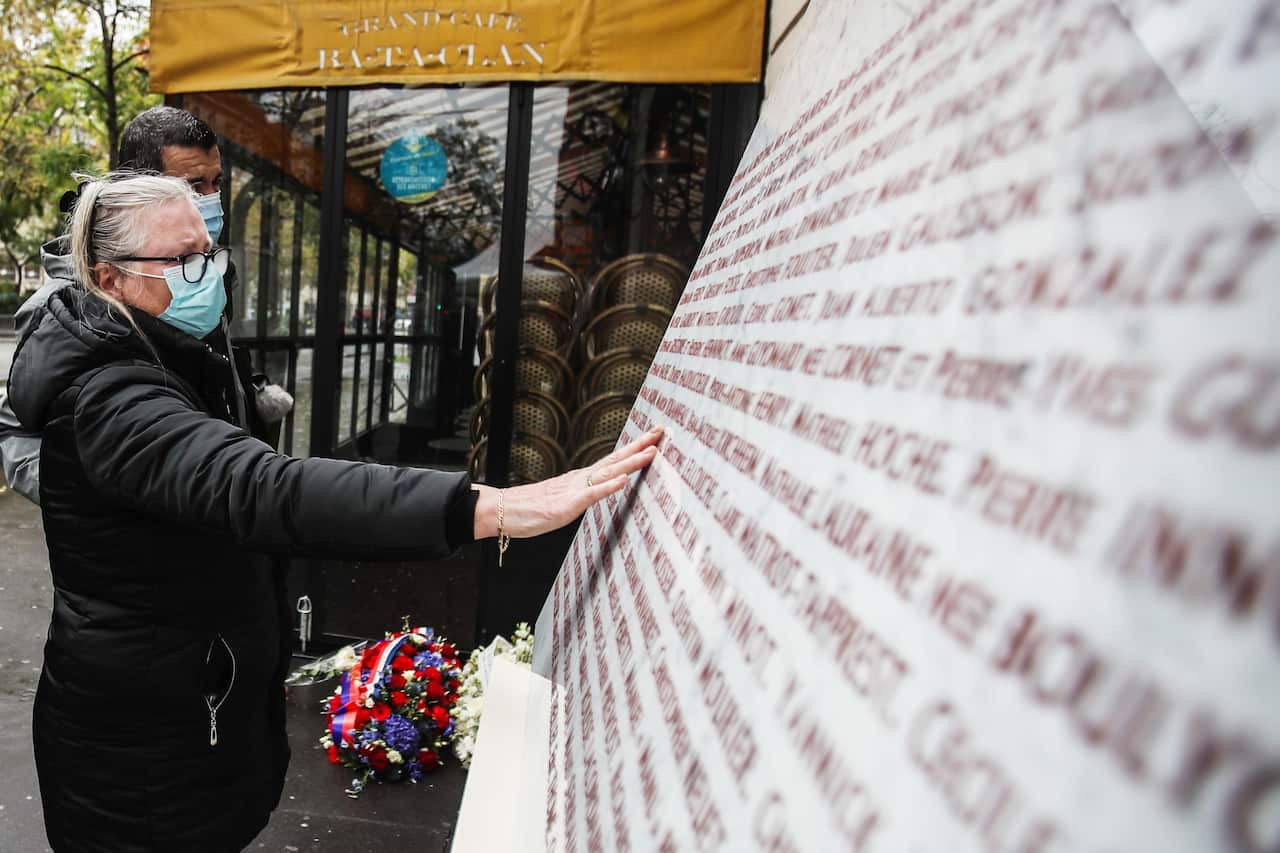The last surviving assailant from the November 2015 attacks on Paris appeared in court on Wednesday at the start of a historic trial over the night of horror that sent shockwaves through France.
The suicide bombing and gun assaults by three teams of jihadists on bars, restaurants, the Bataclan concert hall and the national stadium left 130 people dead and around 350 injured. The attack, planned in Syria, was later claimed by the Islamic State group.
The biggest trial in France's modern history is expected to last nine months.
Only one of the 10 attackers survived. Salah Abdeslam, a dual French-Moroccan national, was captured in Brussels after discarding his suicide vest and fleeing the French capital in the chaotic aftermath of the bloodshed.
After remaining silent for years during questioning by investigators, the 31-year-old gave evasive or provocative answers to basic questions at the start of the hearing, stating his Islamic faith when asked to identify himself.
Wearing a black T-shirt and sporting a long, black beard and swept-back hair, he then replied that he was a "fighter for the Islamic State" when asked for his profession.
During a pause in the proceedings after a co-defendant fell ill, the one-time petty criminal shouted angrily that the accused had been "treated like dogs", but was cut short by the presiding judge. A total of 14 defendants are being tried in person and six others will be judged in their absence, with most of them facing life sentences.
A total of 14 defendants are being tried in person and six others will be judged in their absence, with most of them facing life sentences.

A woman touches the memorial stone after she put flowers outside the Bataclan concert venue, a site of the attacks, in Paris, France, 13 November 2020. Source: EPA
The trial will last until May 2022 with 145 days of scheduled hearings involving about 330 lawyers, 300 victims and testimony in November from Francois Hollande, who was French president at the time of the attacks.
The start of proceedings has been long-awaited by some witnesses and victims' families who are hoping for clarity and closure, while for others it represents an unwelcome reopening of painful wounds.
The attack on the Bataclan, where 90 people mostly in their 20s and 30s were massacred as they watched a rock concert, represented the most traumatic of a string of separate attacks claimed by Islamic State over the course of several years.
"I have to be here for his memory," Cristina Garrido, whose 29-year-old son Juan Alberto died in the Bataclan, said.
She said she hoped Mr Abdeslam would be given a full life prison term, but "I know, too, that the sentence the court hands down will not reduce my pain”.
Arthur Denouveaux, a survivor of the Bataclan attack and president of Life for Paris, a victims' association, said that the trial meant "we are entering the unknown".
"We're eager for it to start, but we're wondering how it's going to go over the next nine months," he said.
Missed opportunities
The files for the trial run to one million pages bound in 542 volumes, detailing an investigation that revealed links between jihadist cells in Paris and Brussels, and their handlers in Syria.
Details of how the squad of killers managed to enter Europe undetected, using the flow of migrants from Islamic State-controlled regions of Syria as cover, is likely to be one of the areas of interest during proceedings.
Some victims' families are also wondering if there were any missed opportunities by security forces to prevent the bloodshed.
As well as Mr Abdeslam, the other 13 accused were present in court on charges ranging from providing logistical support to planning the attacks, as well as supplying weapons.
They include Osama Krayem, a Swede whom Belgian investigators identified as one of the killers of a Jordanian pilot burnt alive in a cage by IS in early 2015 in Syria. He is also under investigation in Sweden for war crimes.
Of the six tried in absentia, five are presumed dead, mainly in air strikes in Syria.
The horror was unleashed late on Friday, 13 November 2015, when the first attackers detonated suicide belts outside the Stade de France stadium where Mr Hollande was watching France play a football match against Germany.
A group of gunmen later opened fire from a car on half a dozen restaurants and Mr Abdeslam's brother Brahim blew himself up in a bar.
The massacre culminated at the Bataclan concert hall.
Share

